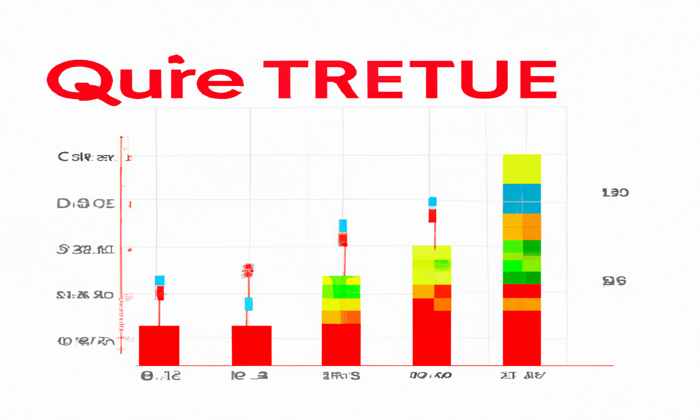The recent news of BitMEX pardons has ignited discussions within the cryptocurrency community, especially following former President Donald Trump’s decision to pardon the company’s co-founders, Arthur Hayes, Benjamin Delo, and Samuel Reed. These three executives had previously faced serious charges relating to regulatory violations, including money laundering, that tarnished the reputation of the well-known crypto derivatives platform. With the pardons, they can now regain their footing in the financial world, raising questions about the implications of such clemency for similar cases in the industry. While BitMEX continues to maintain its assertion of compliance after feeling the heat of regulatory scrutiny, many still view the platform through the lens of its troubled past. This turn of events signals a shift not only for the pardoned individuals but also for the landscape of crypto pardons, sparking renewed interest in how regulatory actions can impact innovative technologies.
In an unexpected twist, the clemency granted to BitMEX’s leadership has captured attention in crypto news circles. The actions taken by Donald Trump resonate deeply with industry stakeholders who recognize the broader implications for executives caught in similar legal dilemmas involving financial legislation and compliance failures. As Arthur Hayes and his colleagues move past their previous convictions, the crypto community is left to ponder the future of financial regulations and the potential normalization of executive pardons in the dynamic world of cryptocurrency. The pardons not only represent a personal victory for the BitMEX co-founders but also signal a possible rewriting of accountability narratives within the fast-evolving digital currency ecosystem. As discussions unfold, many will be watching how this precedent might influence future regulatory engagements within the sector.
The Significance of Donald Trump’s Pardons for BitMEX Co-Founders
The recent pardons granted by former President Donald Trump to the co-founders of BitMEX—Arthur Hayes, Benjamin Delo, and Samuel Reed—mark a significant moment in the intersection of cryptocurrency regulation and political clemency. These pardons have sparked extensive discussions within the crypto community and among legal experts, shedding light on the controversial legal landscape faced by crypto exchanges. The pardons come after the trio had pleaded guilty to serious charges related to regulatory violations, particularly in relation to anti-money laundering protocols mandated by U.S. law.
Critics argue that the pardons could set a precarious precedent, raising questions about accountability in the crypto sector. While some believe this move may encourage more leniency towards tech-based financial enterprises—amid ongoing efforts to regulate the rapidly evolving space—others feel it undermines the integrity of financial regulations designed to prevent money laundering and protect consumers. The situation becomes even more complicated when one considers the broader implications of regulatory compliance in the context of decentralized finance.
Understanding BitMEX Regulatory Violations and Their Implications
BitMEX has faced scrutiny over its regulatory violations, particularly for its failure to enforce adequate anti-money laundering (AML) procedures, which have led to its characterization as a “money laundering platform.” The rationale for these enforcement actions has been rooted in the need to protect the stability of financial systems and ensure that companies within the crypto space adhere to established banking laws. Following a monumental $100 million penalty imposed on BitMEX for these failures, the path forward remains uncertain for the trading platform and its executives.
The ripple effects of these regulatory challenges continue to affect the broader cryptocurrency market. Many other crypto firms are closely monitoring the developments surrounding BitMEX to gauge the regulatory environment’s trajectory and the potential ramifications of Trump’s pardons. As BitMEX’s parent company, HDR Global Trading Limited, reflects on its future amid ongoing scrutiny, the landscape of cryptocurrency trading platforms may evolve significantly, pushing other exchanges to reassess their compliance protocols.
Arthur Hayes and His Role in Cryptocurrencies
Arthur Hayes, co-founder and former CEO of BitMEX, has played a pivotal role in shaping the cryptocurrency derivatives market. Initially, he was celebrated for leading a platform that allowed traders to access high leverage and complex financial products. However, his tenure and the company’s subsequent legal troubles have marred BitMEX’s reputation. The recent pardon led by Trump has rekindled discussions about Hayes’s contributions and controversies, illustrating the volatility inherent within the cryptocurrency sector.
Moreover, Hayes’s experience serves as a cautionary tale for emerging players in the crypto industry. Regulatory bodies are ramping up their oversight, and businesses must navigate a complex landscape unless they want to face punitive measures as BitMEX did. The irony of Hayes receiving clemency raises important questions about the future of regulatory practices and the extent to which political decisions could influence financial operations in the crypto world.
The Future of BitMEX Following the Pardons
Now that Donald Trump has pardoned the BitMEX co-founders, industry experts are analyzing the potential implications for the trading platform’s future. The pardons may afford Hayes, Delo, and Reed some freedom from the legal constraints that previously hampered their ability to operate within the financial sector. This newfound freedom could open various possibilities for BitMEX, including the chance to innovate and re-establish themselves in a market that often operates in a gray area of legality.
However, it remains to be seen whether these pardons will significantly restore trust among users and investors who may have been put off by the company’s tarnished image. As BitMEX looks towards re-entering the market, the emphasis will likely be on implementing stringent compliance measures to avoid further controversies. The crypto community’s sentiment may play a crucial role in the future of BitMEX as it attempts to rejuvenate its brand and regain user loyalty.
Crypto Pardons: A Growing Trend?
The pardons of notable figures like the BitMEX co-founders raise questions about the trend of leniency toward those involved in the cryptocurrency space. As regulators tighten their grip on exchanges and crypto operations, the potential for more high-profile pardons may emerge. Such clemency can impact the legal landscape of cryptocurrencies, encouraging others in similar positions to seek political intervention when faced with stringent penalties.
However, such developments also come with risks; they could foster a perception of favoritism or unequal treatment within the financial system. While the bid to embrace innovation in crypto is essential, balancing it with accountability and regulatory compliance remains critical. The BitMEX pardons can serve as a litmus test for how the legal system reconciles the explosive growth of digital currencies with the established frameworks of financial law.
Impacts of BitMEX’s Legal Journey on Cryptocurrency Exchanges
BitMEX’s legal challenges, characterized by a series of regulatory violations, have generated considerable repercussions for the wider cryptocurrency exchange landscape. As the platform navigates the ramifications of its past actions, there is a growing awareness among other exchanges that the legal environment is shifting. Companies are motivated to enhance their compliance measures to avoid similar pitfalls, reflecting a broader trend towards increased regulatory scrutiny in the crypto market.
Furthermore, the high-profile nature of BitMEX’s situation has captivated both the regulatory community and the media, thus drawing scrutiny towards not just BitMEX, but all exchanges operating in or targeting the U.S. market. In light of these developments, exchanges that previously operated without considering the implications of regulatory compliance might now be compelled to adopt a more cautious approach, projecting a commitment to regulatory standards as a means of staying in the market.
The Role of Investments and Mergers in BitMEX’s Strategy
BitMEX’s recent exploration of mergers and acquisitions, exemplified by their enlistment of Broadhaven Capital Partners for potential buyers, highlights the shifting dynamics within the cryptocurrency exchange industry. As traditional financial institutions begin to recognize the importance of cryptocurrency, partnerships with established investment firms could position BitMEX advantageously in the market. These strategic moves might aim to alleviate some of the trust issues stemming from their previous legal troubles.
Additionally, participating in the crypto derivatives sector through acquisitions could diversify BitMEX’s asset base, providing new revenue streams. By seeking external investments, BitMEX may look to rejuvenate its brand image and demonstrate a commitment to operational excellence, contrasting sharply with their prior legal hurdles. This strategic pivot could be pivotal in defining their role in the evolving crypto landscape.
Analyzing the Political Climate Surrounding Crypto Pardons
The recent pardons granted to BitMEX’s co-founders invite analysis of the political climate surrounding cryptocurrency and regulatory enforcement. With the increasing intersection of finance and politics, decisions like Trump’s clemency raise essential questions about the motivations behind such actions. Critics argue that these political interventions can undermine legal precedents, while supporters may see them as necessary to promote innovation in the U.S. financial landscape.
Understanding the political implications of crypto pardons involves examining how policymakers perceive the burgeoning digital economy. A trend towards granting clemency could signal a shift in the regulatory approach, wherein innovation and entrepreneurship are prioritized above strict enforcement. However, it remains crucial to consider how such actions reflect broader societal attitudes towards regulation in the crypto community, potentially impacting future legislative developments.
The Future Trajectory of BitMEX and Its Community
As BitMEX emerges from a turbulent past with renewed hope following the pardons granted to its co-founders, the platform’s trajectory could dictate the future of its community. Users and investors will be closely monitoring the company’s ability to implement effective compliance measures while restoring lost trust. The community’s acceptance will hinge on BitMEX’s transparency in operations and responsiveness to regulatory frameworks, as well as a demonstrated commitment to fostering a secure trading environment.
Going forward, BitMEX’s ability to innovate within compliance regulations could transition them into a role model for other exchanges facing similar challenges. A successful renaissance could not only enhance user experience but also act as a catalyst for infrastructural changes within the crypto industry, ultimately highlighting the importance of regulatory compliance. These factors will play a pivotal role in determining whether BitMEX can reclaim its position as a leader in cryptocurrency trading.
Frequently Asked Questions
What are the details surrounding the Donald Trump BitMEX pardons?
Former President Donald Trump pardoned BitMEX co-founders Arthur Hayes, Benjamin Delo, and Samuel Reed, who had pleaded guilty to federal charges related to money laundering and regulatory violations at BitMEX. This act was seen as controversial, especially given the platform’s history of being classified as a ‘money laundering platform’ by prosecutors.
How do the BitMEX pardons affect the co-founders’ legal status?
The pardons granted by Donald Trump to the BitMEX co-founders, Arthur Hayes, Benjamin Delo, and Samuel Reed, serve to absolve them of the federal charges they faced. This includes prior admissions of violating the Bank Secrecy Act and the regulatory violations associated with their roles at BitMEX.
What regulatory violations did BitMEX face prior to the pardons?
BitMEX, under the leadership of its co-founders, faced significant regulatory violations for failing to implement necessary anti-money laundering (AML) measures. These violations led to a $100 million penalty ordered by a federal judge for breaching U.S. banking laws.
What implications do crypto pardons like the BitMEX case have on the cryptocurrency industry?
The pardons related to BitMEX highlight significant challenges within the cryptocurrency regulatory landscape. They may signal a changing attitude towards enforcement and could impact how regulators approach compliance within the crypto sector moving forward.
Are there any ongoing legal implications for BitMEX after the pardons?
While the pardons given by Trump absolve the co-founders of previous charges, BitMEX still faces regulatory scrutiny and financial penalties, including a $100 million fine imposed earlier this year. This suggests that legal implications for the company extend beyond the individual pardons.
What recent developments have there been regarding BitMEX and its co-founders?
Recent developments include the pardoning of BitMEX co-founders Arthur Hayes, Benjamin Delo, and Samuel Reed, alongside a $100 million penalty imposed on the company. Additionally, BitMEX has been seeking buyers while undergoing significant changes within the cryptocurrency derivatives market.
How does the Arthur Hayes pardon impact the future of BitMEX?
The Arthur Hayes pardon could potentially ease the legal burdens on BitMEX’s leadership and may facilitate smoother operations moving forward. However, the company still faces regulatory challenges which may affect its long-term sustainability.
Did the BitMEX executives face any financial penalties despite the pardons?
Yes, despite the pardons, BitMEX co-founder Samuel Reed admitted to violations that led to a $10 million fine, and the company itself was ordered to pay a $100 million penalty for regulatory violations. These financial consequences highlight ongoing liabilities for the company.
How did the BitMEX co-founders plead in their legal cases before receiving pardons?
Before receiving pardons from Donald Trump, the BitMEX co-founders—Arthur Hayes, Benjamin Delo, and Samuel Reed—pleaded guilty to charges related to money laundering and regulatory violations, conceding to failures in compliance with the Bank Secrecy Act.
Is there any connection between the BitMEX pardons and other recent crypto legal cases?
The BitMEX pardons align with a broader trend of crypto-related legal cases, including that of Trevor Milton, the former CEO of Nikola, who also received clemency on the same day. This suggests a potential for new patterns in how legal issues within the crypto space may be resolved.
| Key Point | Details |
|---|---|
| Pardoned Individuals | Arthur Hayes, Benjamin Delo, and Samuel Reed, co-founders of BitMEX. |
| Charges | Guilty of federal charges related to money laundering and regulatory violations. |
| Convictions | Failed to implement anti-money laundering measures, described as a ‘money laundering platform’ by prosecutors. |
| Reed’s Acknowledgment | Admitted to violating the Bank Secrecy Act, agreeing to a $10 million fine. |
| BitMEX Penalty | Ordered to pay $100 million for U.S. banking law violations, alongside a two-year unsupervised probation. |
| Sale Efforts | BitMEX engaged Broadhaven Capital Partners to facilitate a potential sale. |
| Comparison with Trevor Milton | Trump issued pardons on the same day as Trevor Milton’s clemency for securities fraud. |
Summary
BitMEX pardons mark a significant moment in the crypto landscape, particularly given the controversies surrounding the platform and its executives. The pardons granted by former President Donald Trump to BitMEX co-founders reflect ongoing tensions in the intersection of cryptocurrency regulation and enforcement. As the cryptocurrency market continues to evolve, the implications of such pardons could shape future regulatory actions and industry standards.
In a surprising turn of events, the recent BitMEX pardons by former President Donald Trump have sent shockwaves through the cryptocurrency community. This bold move grants clemency to BitMEX co-founders Arthur Hayes, Benjamin Delo, and Samuel Reed, who previously admitted guilt to serious federal charges, including money laundering and regulatory violations. The pardons disrupt the narrative surrounding the strict enforcement of financial regulations, especially after the trio faced significant penalties for failing to implement essential anti-money laundering practices at their exchange. With the backdrop of ongoing scrutiny on crypto platforms, these pardons raise intriguing questions about accountability in the rapidly evolving world of digital currencies. As news of the pardons spreads, many are left wondering how this decision will impact the future of BitMEX and its executives amidst the broader conversation about crypto pardons and regulatory compliance.
The recent clemency granted by former President Trump to the key figures behind BitMEX captures significant attention in the crypto space. Known for its tumultuous history with U.S. regulations, the crypto exchange has seen its co-founders—Hayes, Delo, and Reed—receive forgiveness for previous legal infractions, particularly regarding anti-money laundering lapses. These actions underscore the complex interplay between cryptocurrency innovation and regulatory frameworks. As debates about the ethical implications of such pardons unfold, the move highlights larger trends in the digital finance ecosystem, where conversations about high-profile pardons intersect with discussions about compliance failures and the future landscapes of crypto markets.













